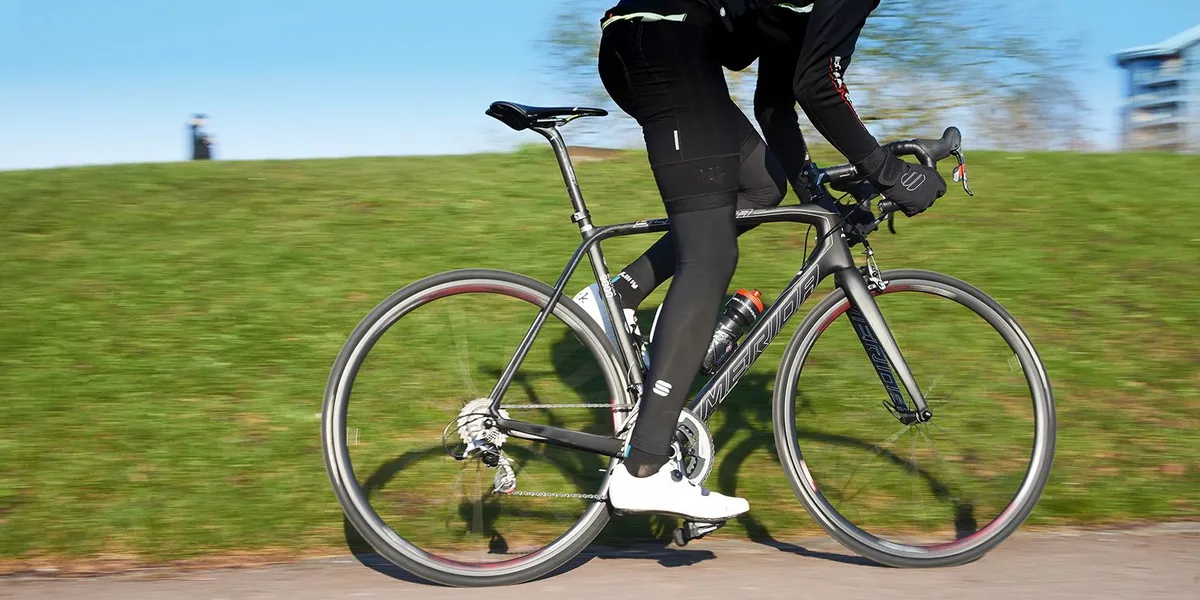The Scultura is Merida’s super light climbing bike. At 6.14kg for this size L, it is indeed feathery, though this isn’t the lightest in the range. That would be the 9000 LTD, a five-figure-sum halo model equipped with freaky-light carbon parts from AX Lightness to tip the scales at 4.55kg and claim the title of world’s lightest production bike.
- Merida claims world's lightest production bike with 680g Scultura 9000 LTD
- Canyon Ultimate CF SLX first ride review
- Bianchi Specialissima review
This 9000 uses the same 680g frame, built with SRAM Red 22, DT Swiss RC28C wheels, an FSA cockpit and a carbon Selle Italia SLR saddle.
Long, low – and disappointingly flexy
The choice of a compact 50/34 crankset makes sense for a climbing-focused bike though the 11-28 cassette has some big and unpleasant jumps in the top half. It can be useful to have that winch-like bottom gear for extreme events but if this were my bike I’d get an 11-25 for the rest of the time.
Only three sizes are offered and the geometry is long and low, so it may be tricky for some riders to get comfortable.

We’ll cut to it – the Scultura 9000 is not that good. There is a very tangible lack of stiffness, especially in the fork, head tube and rear triangle. The steering lacks precision, wandering around slightly over imperfect surfaces at speed, and sprint efforts are not met with crisp responses. And it’s only averagely comfortable.
The DT Swiss Mon Chasseral RC28C wheels are very light for clinchers (1,271g on our scales). Their eager acceleration flatters the frame but I wondered if they’re too light and responsible for some of the flex. To find out, I swapped in a set of Mavic’s brilliant and super-stiff R-Sys SLRs.
Poor, next to the high-end competition
To the credit of the DTs, and the damnation of the Scultura, the ride felt just the same. These are sweet wheels, though the wet braking is poor. The terrible, Merida-badged underslung rear brake is partly to blame, as there was little power even on the alloy Mavics.

What’s more, this bike is expensive. For a little extra outlay you could have a sensational Bianchi Specialissima with Campagnolo Super Record. I rode one back-to-back with the Merida: it blew it away and feels so much more, well, special. Or, for half the cash, you could have a Canyon Ultimate CF SLX 9.0 with the same spec and a far superior frame. Each weighs the same as the Scultura.
I spoke to Jürgen Falke, product director at Merida R&D in Germany. He accepted our criticism but said the bike is for ‘weight weenies’ and that it’s impossible to make a frame this light without losing stiffness.
Yet Bianchi and Canyon, plus others such as Cervélo and Scott, don’t have that problem. Their super-light bikes perform brilliantly. If a 700g frame had to be this flexy then there would be nothing to criticise. Merida simply didn’t get this right.

